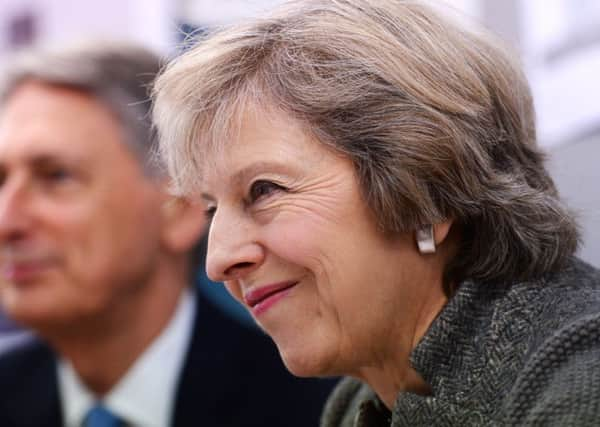Number 10 denies U-turn over putting employees on boards


Addressing the CBI’s annual conference, the Prime Minister offered an olive branch to businesses who were concerned about proposals to improve company behaviour and curb excessive executive pay, but unions reacted angrily to the announcement.
Mrs May told companies the UK would have the lowest corporation tax rate of any major economy in exchange for firms partnering with government in a “great national effort” to make big business more socially responsible.
Advertisement
Hide AdAdvertisement
Hide AdBut there was uncertainty over a major part of that effort after the Prime Minister said she would consult on plans to give employees a voice in the boardroom.
Despite saying in her speech to the Conservative Party Conference that “we’re going to have not just consumers represented on company boards, but employees as well”, Mrs May yesterday said that workers could take part in separate advisory panels instead.
And she said: “I can categorically tell you that this is not about mandating works councils, or the direct appointment of workers or trade union representatives on boards.”
GMB general secretary Tim Roache said: “The mask is slipping – nice speeches followed by broken promises will not help working people get fairness and dignity in the workplace.”
The Prime Minister also used her CBI appearance to acknowledge business fears about a sudden “cliff-edge” change after the UK leaves the European Union.
In comments that have boosted speculation the UK could seek some form of transitional relationship with the EU after Brexit, Mrs May said: “People don’t want a cliff-edge; they want to know with some certainty how things are going to go forward.”
She responded to the concerns raised by CBI president Paul Drechsler about a “sudden and overnight” change to trading relations.
Mrs May accepted there was “uncertainty” caused by Brexit but that businesses would also be able to benefit from global trade opportunities after leaving the bloc.
Downing Street said the Prime Minister was “reflecting the views we have expressed already about how we secure the best deal for the UK”.